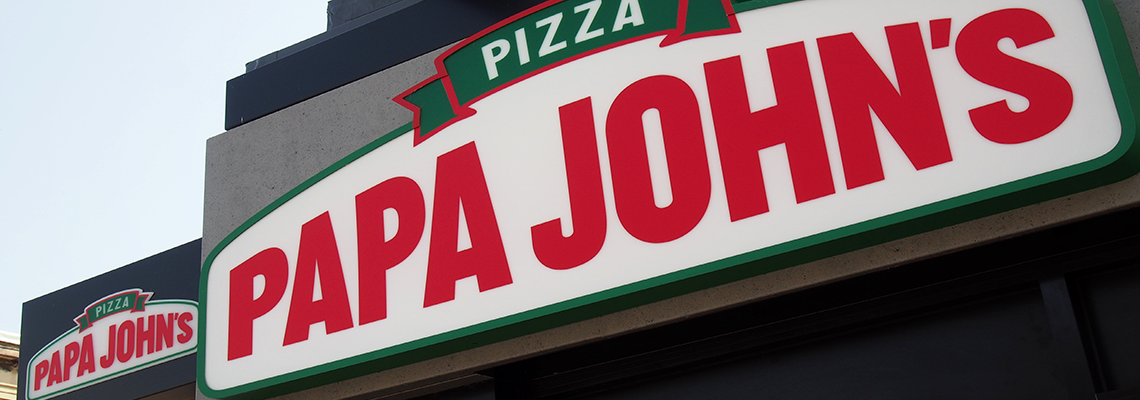
UPDATE: Papa John’s Drivers Class-Action Suit Over Unpaid Wages Continues
Employees who depend on their vehicles for their livelihood, such as delivery persons, are facing a crisis due to rising gasoline costs and overall inflationary pressures. Those in delivery or rideshare arrangements are particularly subject to the retail gasoline market, and some employers are not recognizing this by increasing mileage reimbursements.
Delivery and rideshare employees must still be compensated at the minimum wage rate in the state they are working. This means that, depending on the state, the wage they earn per hour, comprised of tips, mileage reimbursement, and wages tendered, must equal or surpass the state-mandated minimum wage.
The federal minimum wage is $7.25 per hour, which is the rate Kentucky recognizes while other states impose higher rates. Depending on how delivery and rideshare companies compute the minimum wage, when gas prices rise but recompense for mileage is inequitable, companies can be in violation of state and federal laws governing wages and hours.
Given the state of inflation, including gasoline prices, my firm has launched a class action lawsuit against Papa John’s for violating wage and hour laws by not properly reimbursing for mileage expenses. Latest development: the federal trial court declared that the case should be arbitrated, not litigated. That decision is on appeal to the federal appellate court.
If you work for a business entity in or around Louisville, Kentucky, or anywhere in the state, and believe your wage-and-hour rights have been violated and wish to pursue the possibility of a class action lawsuit, contact me immediately at Chris Sanders Law PLLC.
Minimum Wage Requirements
A handful of states began regulating minimum wages before the Great Depression, when the inauguration of Franklin Delano Roosevelt (FDR) set in motion measures to regulate business practices throughout the nation using its constitutional powers over interstate commerce.
Among the seminal pieces of legislation under FDR was the Fair Labor Standards Act (FLSA) of 1938, which not only established a minimum wage but also set the workweek at 40 hours. The FLSA also mandated overtime at one-and-a-half times the regular rate for hours worked beyond 40. The power to set the minimum wage was given to Congress, and the power to regulate to the Department of Labor (DOL).
In the Commonwealth of Kentucky, wage-and-hour issues are enforced by the Division of Wages and Hours of the Labor Cabinet. Kentucky currently follows the federal minimum wage of $7.25 an hour and the overtime standard of time-and-a-half.
What Is a Class Action Lawsuit?
A class action lawsuit involving employment laws is called for when a large group of employees is similarly wronged. A class action is less cumbersome and complex than filing individual lawsuits for each affected individual. In fact, the law governing class actions requires that the class “be so numerous that joinder of all members is impracticable.”
A class action lawsuit generally takes longer than an individual case to work its way through the court system. Class actions require an investigation to determine whether questions of law and fact apply equally to all members of the potential class.
Filing an Employment Class Action Lawsuit
The class action my law firm has undertaken on behalf of delivery personnel for Papa John’s Pizza springs from the corporation’s refusal to take into account the increased operating costs of the drivers delivering the pizzas and the equitable rate for mileage reimbursement.
The Internal Revenue Service (IRS) allows a $0.58 deduction for every mile driven by a company’s driving personnel, but Papa John’s pays its drivers only $0.36 per mile, roughly two-thirds of what the IRS recognizes as a legitimate mileage expense. Thus, drivers are being cheated out of what is owed them.
Delivery drivers are also dependent on tips from customers to provide a bridge to cover the minimum wage. Tips, of course, are never guaranteed. Papa John’s drivers are, as a consequence, falling below the minimum wage guaranteed by state and federal laws and regulations.
As my class action lawsuit states:
“During the applicable statutes of limitations periods at issue in this lawsuit, the IRS reimbursement has been between $.535 and $.585 per mile. Likewise, reputable companies that study the cost of owning and operating a motor vehicle and/or reasonable reimbursement rates, including the AAA, have determined that the average cost of owning and operating a vehicle was around $.589 per mile during the same period for drivers who drive 15,000 miles per year. These figures represent a reasonable approximation of the average costs of owning and operating a vehicle for use in delivering pizzas.”
Experienced Legal Help for
Class Action Lawsuits
If you’re experiencing company-wide violations of wage and hour laws, a class action lawsuit can be the route to obtaining compensation for all of you who have been harmed. If you’re in Louisville, or anywhere in Kentucky, and you have an employment problem that affects you and a large group of individuals like you, contact me immediately at Chris Sanders Law PLLC.
